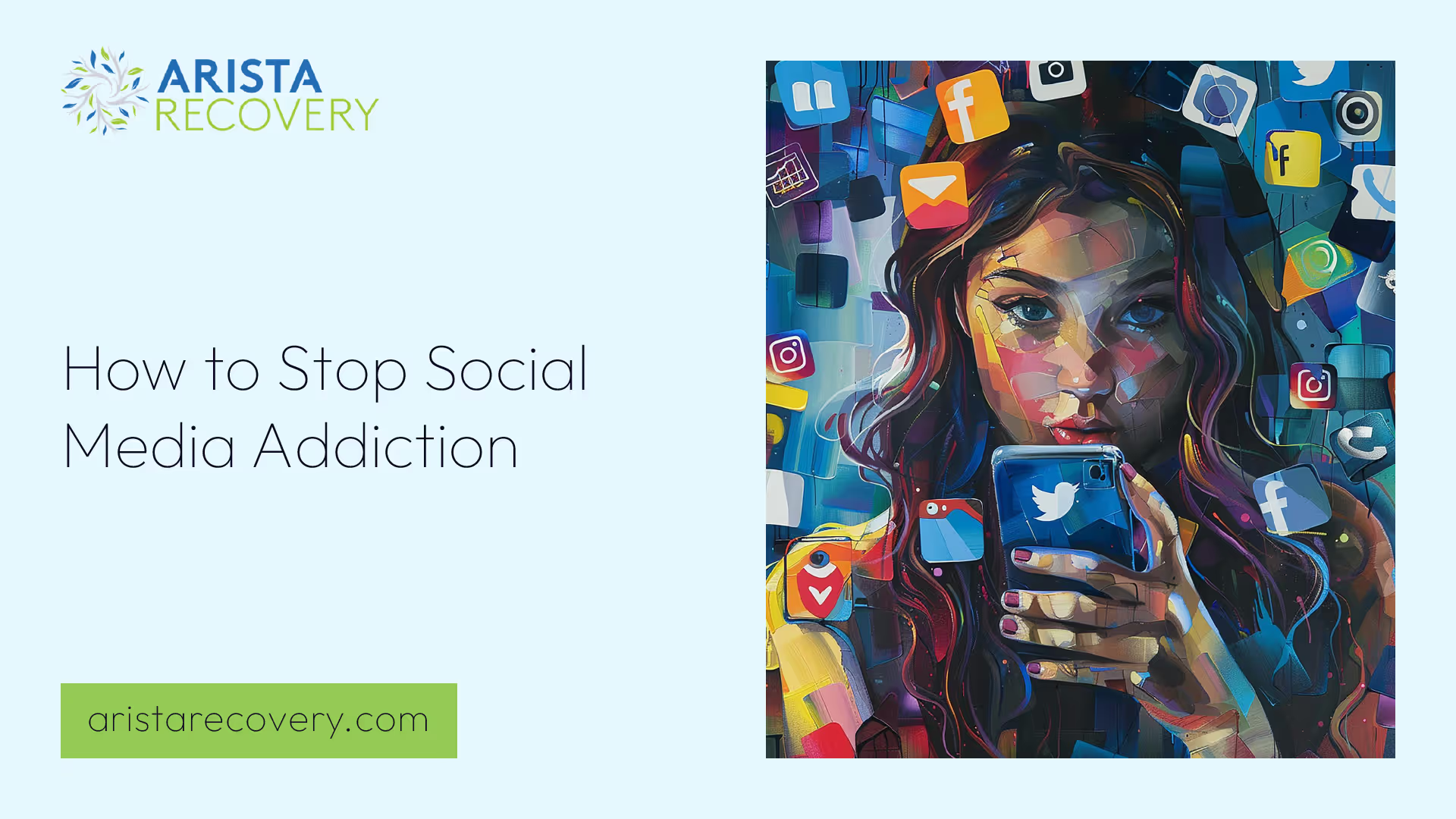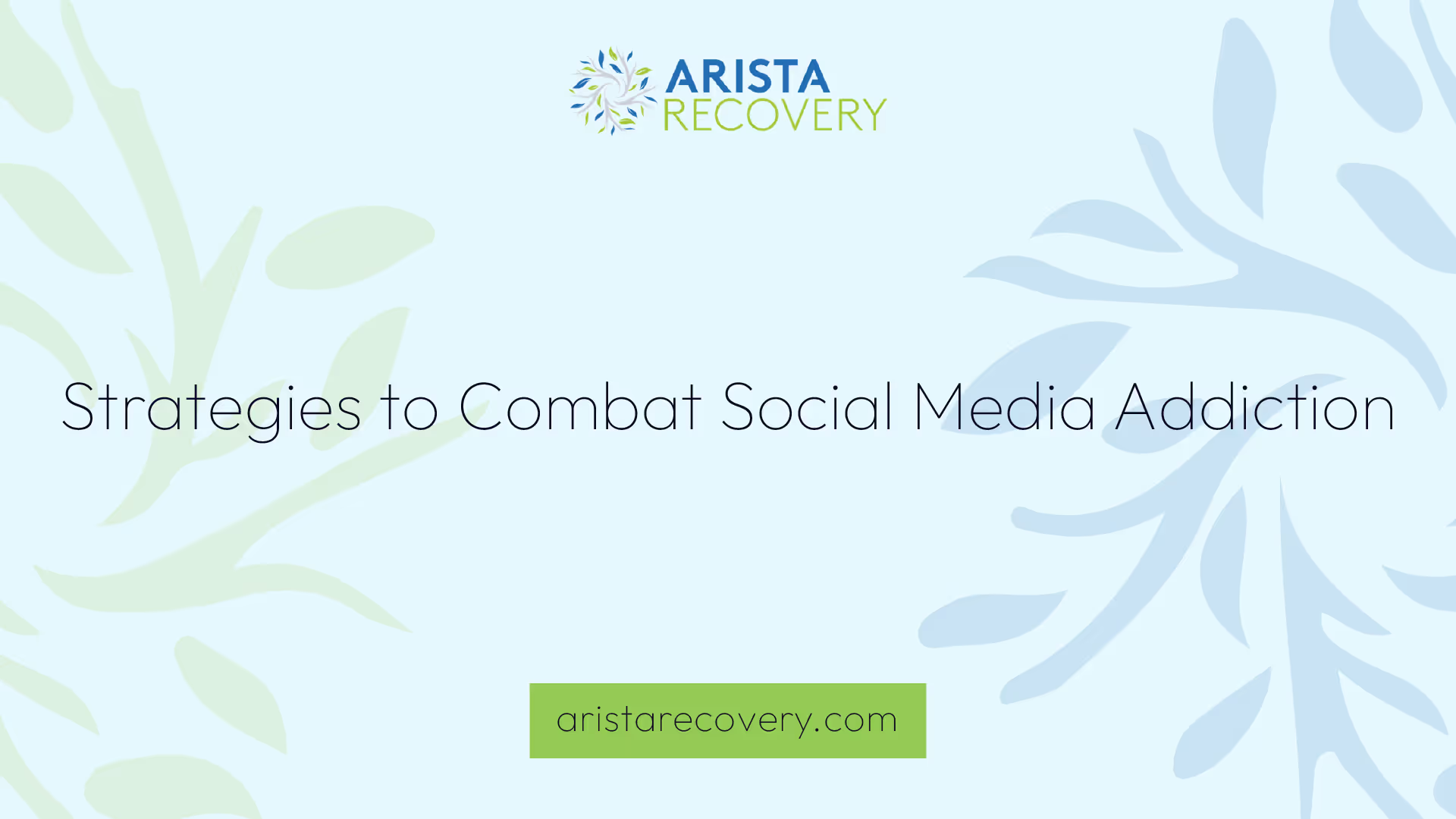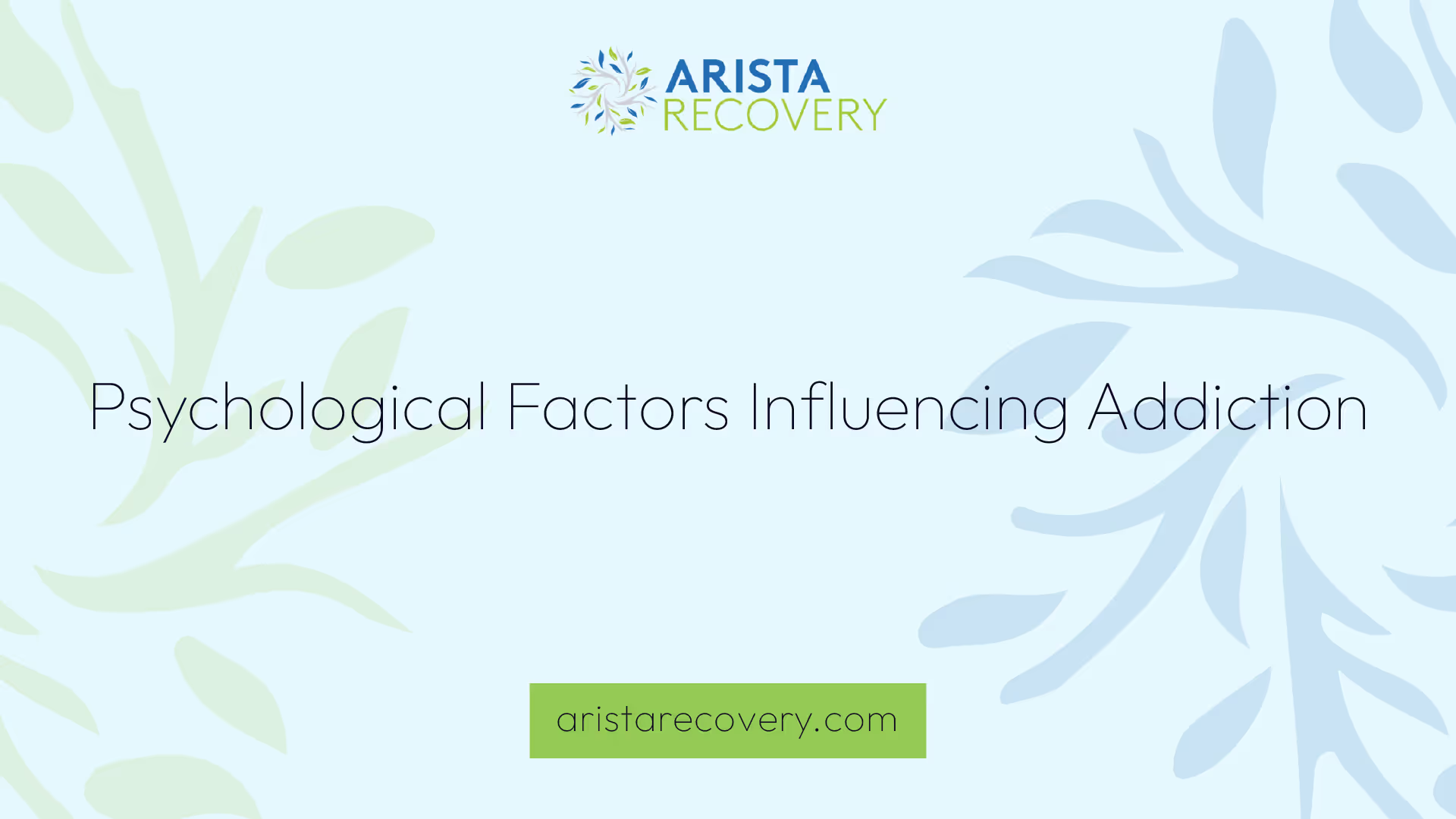
How to Stop Social Media Addiction

Understanding Social Media Addiction
Impact of Social Media Addiction
Social media addiction is characterized by an obsessive use and focus on social media platforms, leading to various negative consequences. Psychologists estimate that as many as 5 to 10% of Americans meet the criteria for social media addiction today [1]. The impacts of this addiction can be wide-ranging and affect multiple aspects of an individual's life.
Mental Health Consequences
One of the primary impacts of social media addiction is on mental health. Excessive use of social media can lead to increased anxiety, depression, and loneliness. The constant need for approval and reciprocity on social media platforms can exacerbate these feelings, making it difficult for individuals to maintain a positive mental state.
Relationship Issues
Social media addiction can also strain personal relationships. Spending excessive amounts of time on social media can lead to neglect of real-life relationships, causing conflicts and misunderstandings. This can result in feelings of isolation and exacerbate mental health issues such as anxiety and depression.
Decreased Productivity
Another significant impact of social media addiction is decreased productivity. The constant distraction of social media can interfere with work, school, and other responsibilities. This can lead to poor performance and missed opportunities, further contributing to stress and anxiety.
Signs of Social Media Addiction
Identifying social media addiction can be challenging, but there are several signs that may indicate a problem. According to the Bergen Social Media Addiction Scale, scoring 4 or 5 ("often" or "very often") on at least four of the statements can suggest addiction [2].
Common Signs
- Excessive Time Spent on Social Media: Spending a large amount of time on social media platforms, to the extent that it interferes with daily activities.
- Preoccupation with Social Media: Constantly thinking about social media when not using it, and feeling the urge to check social media frequently.
- Neglect of Responsibilities: Using social media to the point that it gets in the way of work, school, and personal relationships.
- Emotional Dependence: Feeling anxious or distressed when unable to access social media.
- Using Social Media to Escape: Turning to social media to avoid dealing with real-life problems or emotions.
Bergen Social Media Addiction Scale
For individuals and families impacted by substance use, recognizing the signs of social media addiction is the first step toward reclaiming control. By understanding these symptoms, one can explore effective strategies to combat the addiction, such as utilizing digital detox methods, implementing app restrictions, and setting usage limits.

Strategies to Combat Social Media Addiction
Addressing social media addiction involves implementing practical strategies to reduce reliance on social networking platforms. Here are some effective methods:
Utilizing Digital Detox Methods
A digital detox involves a significant reduction in electronic device usage, which can be an effective preventive measure against social media addiction [1]. Simple steps to achieve this include:
- Turning off sound notifications
- Limiting social media checks to specific times
- Establishing self-imposed non-screen time
These actions help restore focus on real-world interactions and reduce dependency on social media.
Implementing App Restrictions
Social media platforms are designed with features that challenge self-control, such as endless scrolling and frequent notifications [2]. Utilizing app restrictions can help manage usage:
- Use apps or built-in phone features to limit daily social media time
- Set specific time limits for each social media app
- Block access to social media during work or study hours
For more insights into managing different types of addictions, visit our articles on how to stop caffeine addiction and how to stop video game addiction.
Setting Usage Limits
Setting clear usage limits can help individuals regain control over their social media habits. This can be done through:
- Establishing daily time limits for social media use
- Using apps that track and report daily social media activity
- Creating rules for social media-free periods, such as during meals or before bedtime
Implementing these strategies can help individuals and families combat social media addiction effectively. For more tips on managing addiction, explore our articles on how to stop sex addiction and how to stop eating addiction.

Psychological Factors Influencing Addiction
Understanding the psychological factors that influence social media addiction is crucial for developing effective strategies to combat it. Two significant factors are peer pressure and self-esteem.
Peer Pressure and Addiction
Peer pressure is a powerful influence, especially among adolescents. It significantly predicts mobile social media addiction, as individuals often feel compelled to conform to the online behaviors of their peers [4]. This conformity can lead to increased time spent on social media platforms, contributing to addiction.
Adolescents with a strong sense of self-concept clarity and high self-esteem are less likely to succumb to peer pressure. This resilience helps in reducing the risk of developing a social media addiction. For more information on managing different types of addictions, visit our articles on how to stop caffeine addiction and how to stop video game addiction.
Self-Esteem and Addiction Moderation
Self-esteem plays a crucial role in moderating the effects of peer pressure on social media addiction. Individuals with higher self-esteem are better equipped to resist the urge to conform to peer behaviors [4]. This resistance helps in maintaining a healthier relationship with social media.
Moreover, self-concept clarity interacts with self-esteem, providing a stronger buffering effect against peer pressure. Adolescents with both high self-esteem and high self-concept clarity are less likely to develop social media addiction.
Understanding these psychological factors is essential for addressing social media addiction effectively. For more strategies on managing addictive behaviors, you can explore our articles on how to stop sex addiction and how to stop eating addiction.
Health Implications of Social Media Addiction
Mental Health Consequences
Social media addiction has profound effects on mental health, manifesting in various forms of emotional and psychological distress. An estimated 5 to 10% of Americans meet the criteria for social media addiction. This overindulgence can lead to significant mental health issues, including:
- Anxiety and Depression: Constant exposure to curated and often unrealistic portrayals of life on social media can cause feelings of inadequacy, anxiety, and depression.
- Low Self-Esteem: The continuous comparison with others and the need for social validation through likes and comments can erode self-esteem.
- Emotional Withdrawal: Individuals may become emotionally distant or disconnected from real-world interactions due to their obsessive focus on social media [5].
These mental health issues are exacerbated by the dopamine-inducing environments created by platforms like TikTok, Facebook, Snapchat, and Instagram. The constant stream of likes, shares, and retweets triggers the brain's reward area, leading to a chemical reaction similar to that caused by recreational drugs [1].
Physical Health Effects
The physical health impacts of social media addiction are equally concerning. Prolonged use of social media can lead to various physical ailments, including:
- Sleep Disturbances: Excessive screen time, especially before bed, can interfere with sleep patterns, leading to insomnia and other sleep disturbances.
- Eye Strain: Staring at screens for extended periods can cause digital eye strain, leading to discomfort and potential vision problems.
- Sedentary Lifestyle: Increased time spent on social media often correlates with reduced physical activity, contributing to a sedentary lifestyle and associated health risks such as obesity and cardiovascular issues.
A table summarizing the mental and physical health effects is shown below:
Understanding the health implications of social media addiction is crucial for those looking to reclaim their time and well-being. For more tips on addressing different types of addiction, you can explore our articles on how to stop caffeine addiction, how to stop video game addiction, how to stop sex addiction, and how to stop eating addiction.
Tools and Apps for Managing Usage
To effectively manage and reduce social media addiction, several tools and apps can assist individuals in regaining control over their digital lives.
Barrier - Social Lock
Barrier — Social Lock helps users take a step back from social media. By allowing a temporary unlock of apps for just 10 minutes, followed by an ad, it serves as a psychological nudge to reconsider choices and opt for more productive activities. This app is ideal for those who need a gentle reminder to stay focused and avoid getting lost in the social media vortex.
Freedom App for Digital Control
Freedom is a robust app designed to help users regain control over their digital life. It blocks distracting websites and apps across all devices, offering customizable blocklists and scheduled block sessions to help focus on important tasks [6]. Freedom is suitable for those who need a comprehensive solution to manage their digital consumption.
Offtime for Customized Breaks
Offtime allows users to tailor their digital breaks by blocking distractions for work, family time, or personal relaxation. This app is ideal for individuals seeking balance in their digital consumption and ensuring they have time for important offline activities.
Using these tools can be an effective strategy in learning how to stop social media addiction. For more tips and methods on managing different types of addiction, explore our articles on how to stop video game addiction, how to stop sex addiction, and how to stop eating addiction.
Research and Studies on Social Media Addiction
Understanding the research behind social media addiction is crucial for developing effective strategies to combat it. This section delves into the behavioral effects on adolescents and the impact on mental well-being.
Behavioral Effects on Adolescents
Adolescents are particularly vulnerable to the effects of social media addiction. Studies have shown that peer pressure significantly predicts adolescent mobile social media addiction [4]. Adolescents with high self-esteem and self-concept clarity are less likely to be affected by peer pressure, reducing the risk of addiction.
The presence of peer pressure can exacerbate the likelihood of social media addiction, while higher self-esteem and self-concept clarity can buffer its impact. This highlights the importance of fostering a positive self-image and self-awareness among adolescents to mitigate the effects of social media addiction.
Impact on Mental Well-being
Overuse of social media has been linked to various mental health issues, especially in children and young adults. Adolescents who excessively use social media from a young age may experience:
- Stunted social interaction skills
- Worsened social anxiety
- Higher rates of depression
- Negative body image
- Decreased levels of empathy and compassion
These mental health consequences underscore the need for effective strategies to manage social media use. For more information on combating different types of addictions, check out our articles on how to stop caffeine addiction and how to stop video game addiction.
Understanding the research and studies on social media addiction can help individuals and families develop better strategies for managing and reducing social media use, ultimately improving mental well-being.
References
[1]: https://www.addictioncenter.com/behavioral-addictions/social-media-addiction/
[2]: https://www.newportinstitute.com/resources/co-occurring-disorders/social-media-addiction/
[3]: https://www.goodrx.com/well-being/behavioral-addiction/addicted-to-social-media
[4]: https://www.ncbi.nlm.nih.gov/pmc/articles/PMC10126400/
[5]: https://socialmediavictims.org/social-media-addiction/signs/
[6]: https://medium.com/@jaredcassoutt/5-best-apps-to-limit-social-media-time-06953698535a
When mental health challenges and addiction intersect, it can feel isolating. At Arista, we offer compassionate, evidence-based, and trauma-informed care to help you heal, grow, and move forward.
You’re not alone in this.
When mental health challenges and addiction intersect, it can feel isolating. At Arista, we offer compassionate, evidence-based, and trauma-informed care to help you heal, grow, and move forward.
Support that moves with you.
You’ve taken a brave first step. At Arista Recovery, we’re here to help you continue with best-in-class care designed for long-term healing and support.
.webp)






